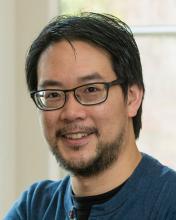EOSC EVERSE: Paving the way towards a European Virtual Institute for Research Software Excellence
1 December 2023
Software is ubiquitous in modern society; from our cell phones to our transportation, and from entertainment to industry. Trust in research software longevity requires good engineering and clear organisational processes that enable the many varied roles working together to sustain software. To ensure research software curation, quality, preservation and adoption of best practices tailored to developers at all levels, from researchers who code to Research Software Engineers (RSEs), we need to adopt an approach that accounts for the varying complexity of research software and its development. The EVERSE project will work to create this framework for research software and code excellence.
The EVERSE framework will be collaboratively designed and championed by the research communities across the five European Open Science Cloud (EOSC) Science Clusters and national Research Software Expertise Centres (including the UK Software Sustainability Institute, led by EPCC), building a European Network of Research Software Quality, and laying the foundations for a future Virtual Institute for Research Software Excellence.
Cultural change
EVERSE aims to cross-fertilise different research domains, act as a lobbying organisation, and raise awareness of software as a key enabler in research, with the overall ambition of accelerating research and innovation through improving the quality of research software and code. EVERSE’s ultimate ambition is to contribute to a cultural change where research software is recognised as a first-class citizen of the scientific process, and the people contributing to it are credited for their efforts.
RSQkit: an open knowledge base of best practice for research software
EVERSE will address challenges involving community curation, quality assessment, and best practices for research software. This collective knowledge will be captured in the Research Software Quality toolkit (RSQkit), an open knowledge base to gather and curate expertise that will contribute to high-quality software and code across different disciplines.
By embedding the RSQkit and services into the EOSC Science Clusters, EVERSE will demonstrate improvements in the quality of research software and maximise its reuse, leading to standardised software development practices and sustainable research software. Furthermore, EVERSE will drive recognition of software as well as supporting training and career progression for developers, from researchers who code to research software engineers, raising their capacity to guarantee software quality. Doing this will also help researchers of research software engineering processes, who are focusing on understanding quality measures for research software and the adoption of practices through empirical software engineering approaches.
Collaborative community
The University of Edinburgh is participating in EVERSE through EPCC. I will co-lead Work Package Three of EVERSE, developing and implementing processes and tools that support the assessment and verification of code quality, and an EPCC team including Giacomo Peru and Dr Kirsty Pringle will focus on building a collaborative community for evaluating, verifying, and improving the quality of scientific software and code, and collecting and consolidating best practices and standards from across scientific communities on research software.
EVERSE builds on the experience and expertise in improving research software practice that we have established through leadership of the Software Sustainability Institute and our international efforts on software policy, including the co-leading the development of the FAIR principles for research software. It will also continue the work we have been doing on software metrics and metadata in the FAIR-IMPACT project by developing and implementing processes and tools that support the assessment and verification of code quality, based on established best practices and standards across scientific communities.
EVERSE starts in spring 2024 and will run for 36 months with 18 partners across ten countries. It is coordinated by the Institute of Applied Biosciences (INAB) of the Centre for Research and Technology Hellas, (CERTH). The project is funded by Horizon Europe call HORIZON-INFRA-2023-EOSC-01-02 (#101129744).

